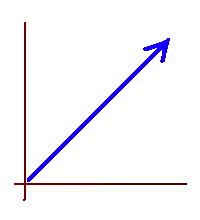The mental equivalent of a boot camp obstacle course
Sometimes after solving a relatively hard problem, GMAT students ask: "Can you give me a few problems similar to this one? Can you make them up? Or, is there a book with several problems just like this one? I want more practice with this kind of problem."
Seemingly, there is nothing wrong with wanting more practice but when GMAT or GRE students make this request they are missing an important point. That exact kind of problem is not going to be on the test. They may encounter a somewhat similar type of problem, but it is going to have its own twist, in some way it is going to be different, tweaked. The companies that produce tests like the GMAT and the GRE work very effectively to make sure that, when you take the real test, you will need to invent a solution on the spot by yourself, for every single problem. Each problem is going to be unique, completely new, something you would have never seen before, no matter how many preparation books and courses you have been through.
Traditional instruction during normal school courses has students drilling through stacks of problems of the same kind, applying the same formulas over and over. And, generally speaking, students can expect to find in their finals and midterms the same kind of problems they practiced with while doing homework.
The GMAT and the GRE do not cater to this drill-based learning model. Granted, you still need to know how to perform the operations, you need to know which properties to use and how to apply the formulas. But that alone is not enough. You need an extra skill that traditional, drill-based homework cannot give you.
Allow me to make this metaphor. Mathematics is a certain kind of mental activity, a mental exercise. Tests like the GMAT and the GRE are designed to measure a specific type of mental performance but, what type exactly? Well, let's compare drill homework (solving a ton of problems of the same type using the same procedure and the same formulas over and over) to working out by lifting weights at the machines in the gym. If you train only at the machines, that can give you muscle mass and strength. But that alone will not prepare you for successfully negotiating a Navy Seal obstacle course. The GMAT and the GRE are the mental equivalent of a boot camp obstacle course, while drill homework is the equivalent of the machines at the gym.
Real preparation for the GMAT and the GRE has to address your mental flexibility, that is, your creativity and your ability to discover patterns you have not seen before. You want to learn how to solve problems by reasoning, not by memorizing routine procedures. Once you understand this, you will be asking for new problems, for problems of a different kind, not for the same kind of problems.
Stylometry
-
I was reading an article this morning that mentioned a styometric analysis
of a controversial paragraph written by Roman historian Flavius Josephus.
I’ve...
17 hours ago





1 comment:
Ya, I agree that similar tough problems won't be repeating but instead, a similar problem with different twist in it may occur...So, its better to go on practicing huge number of problems...
cheers,
suma valluru
-----------------------------------------
https://www.esumz.com
Post a Comment